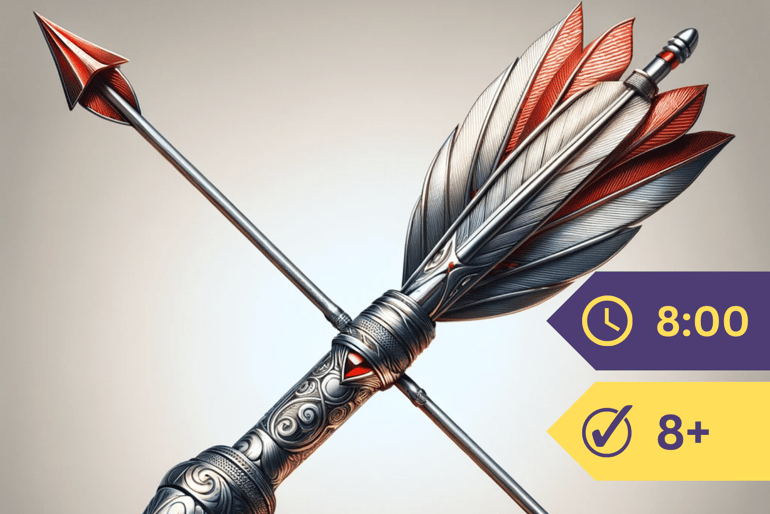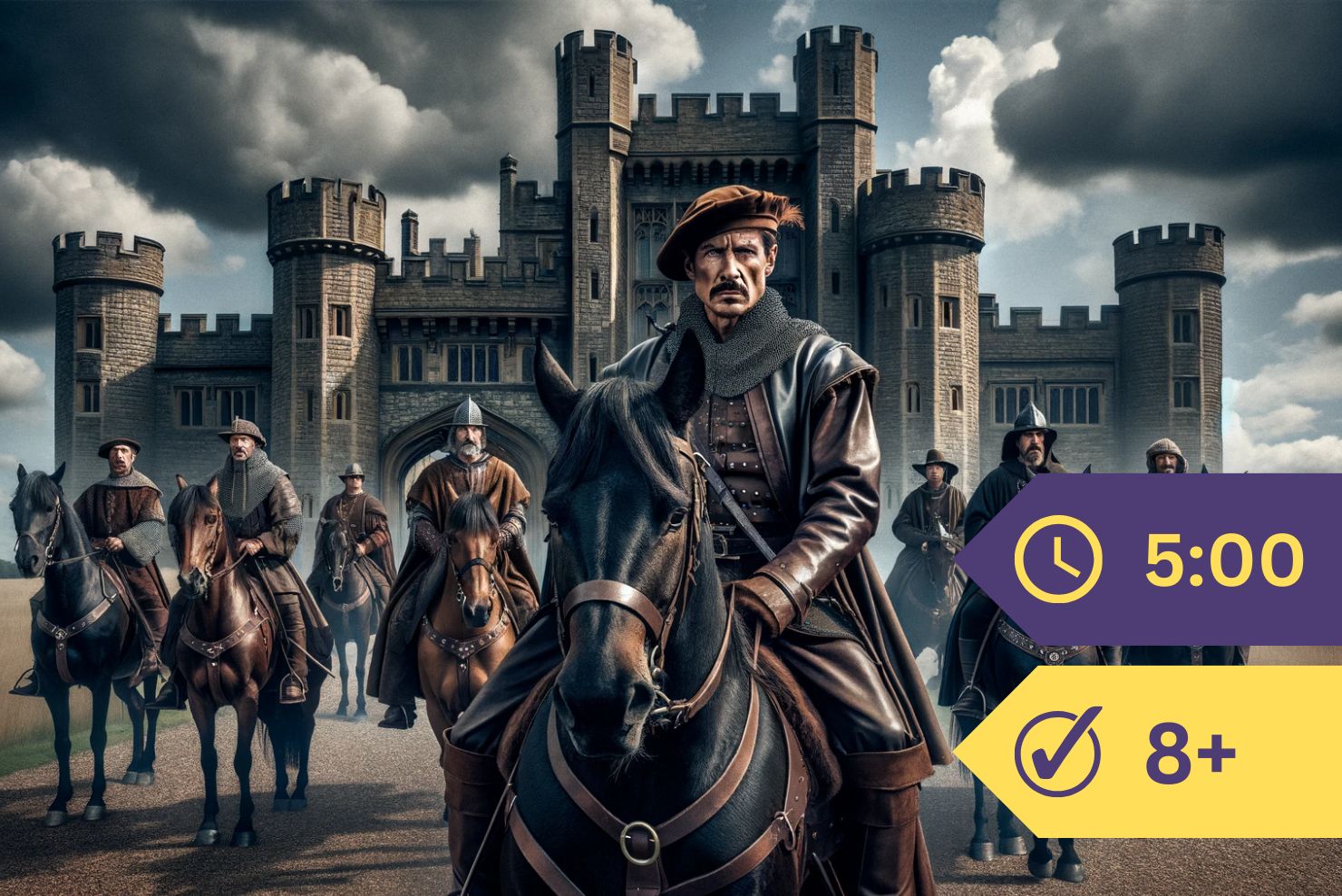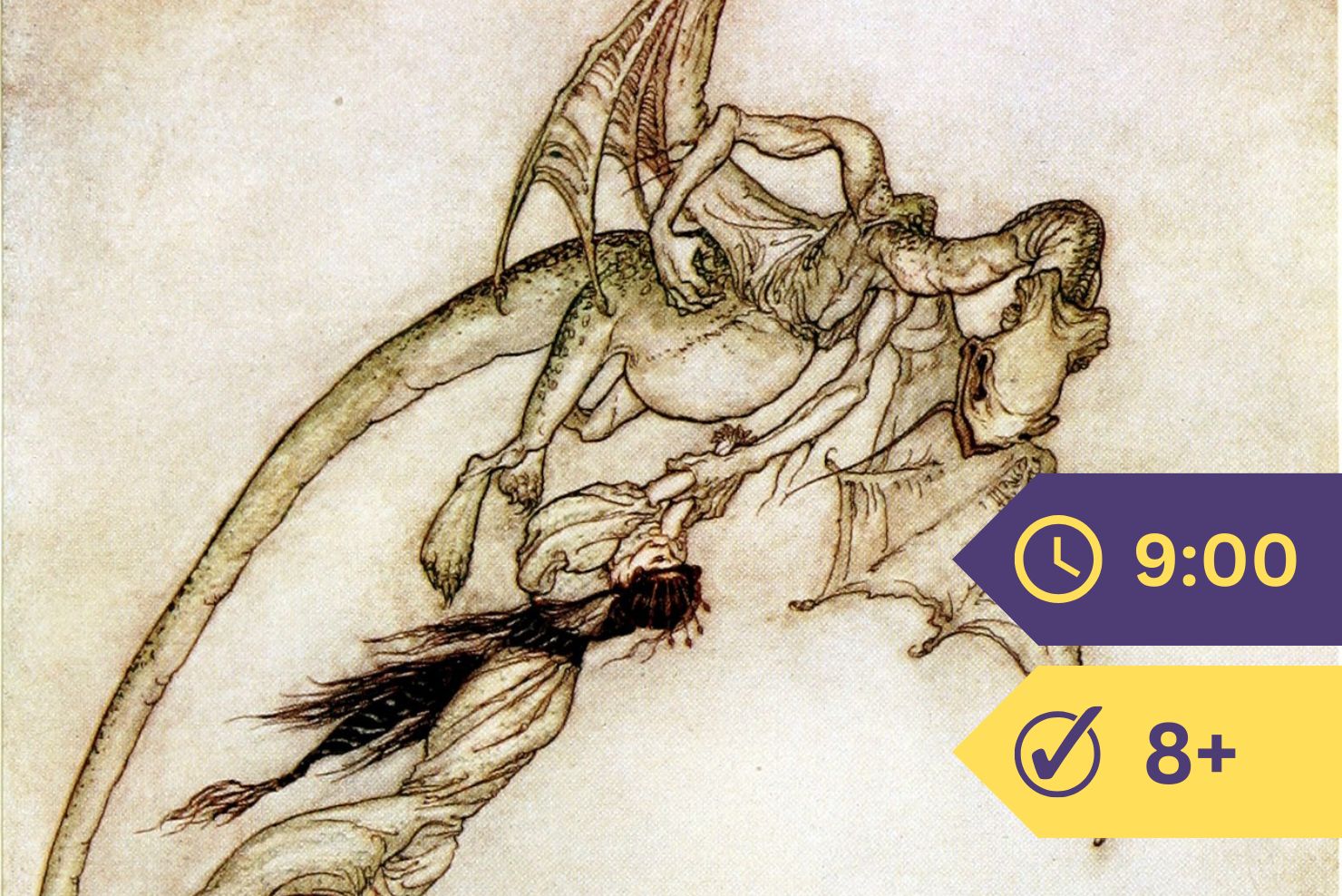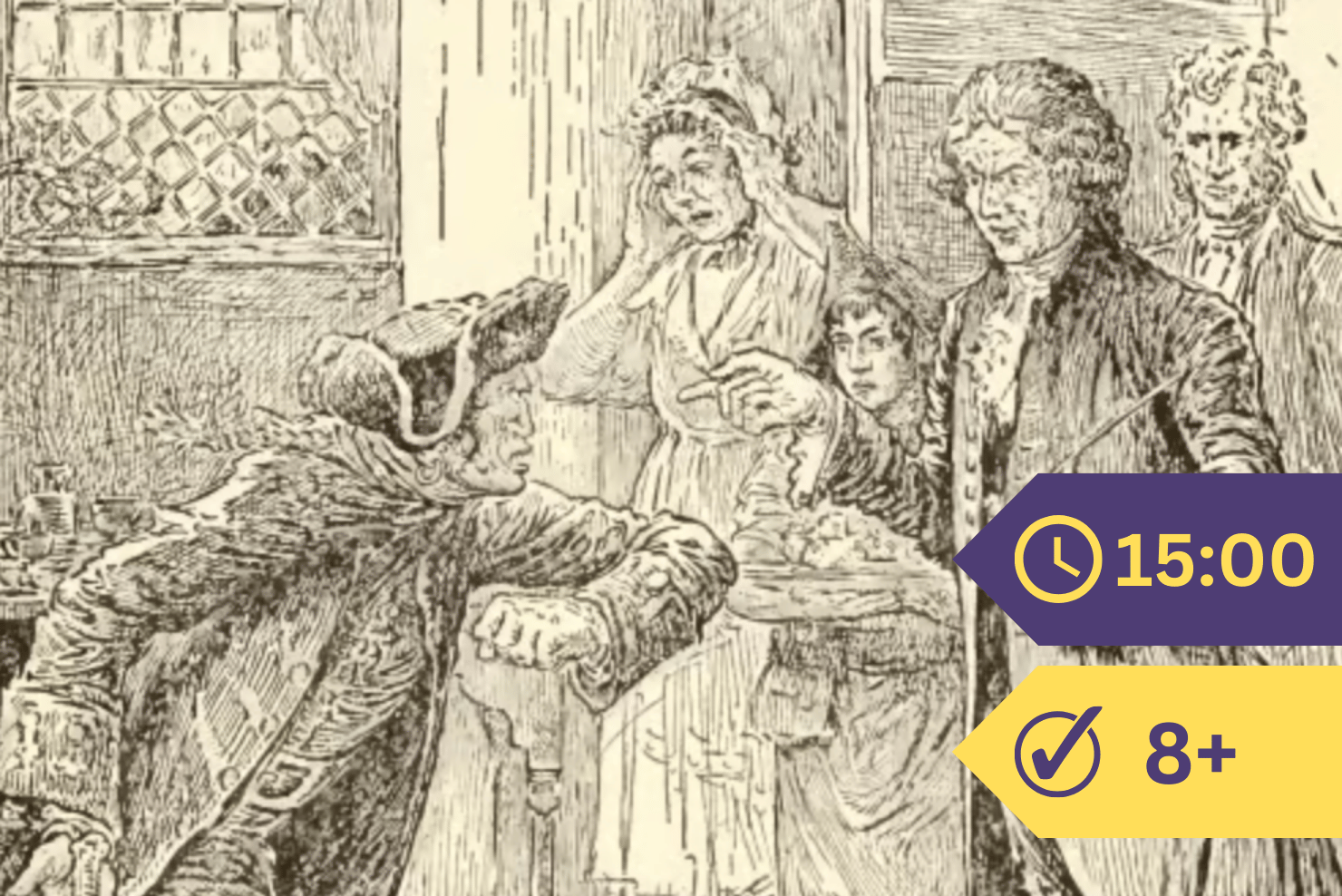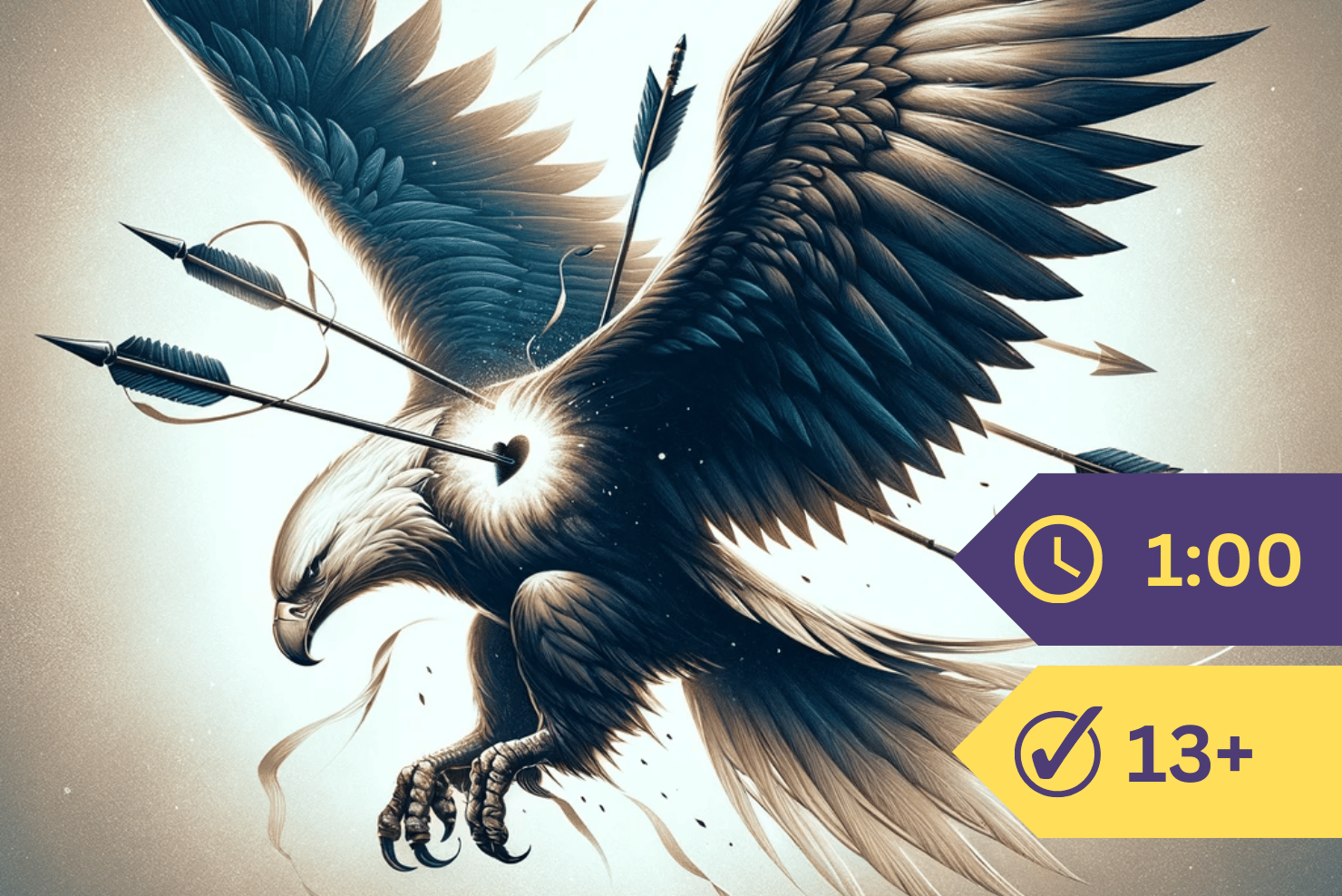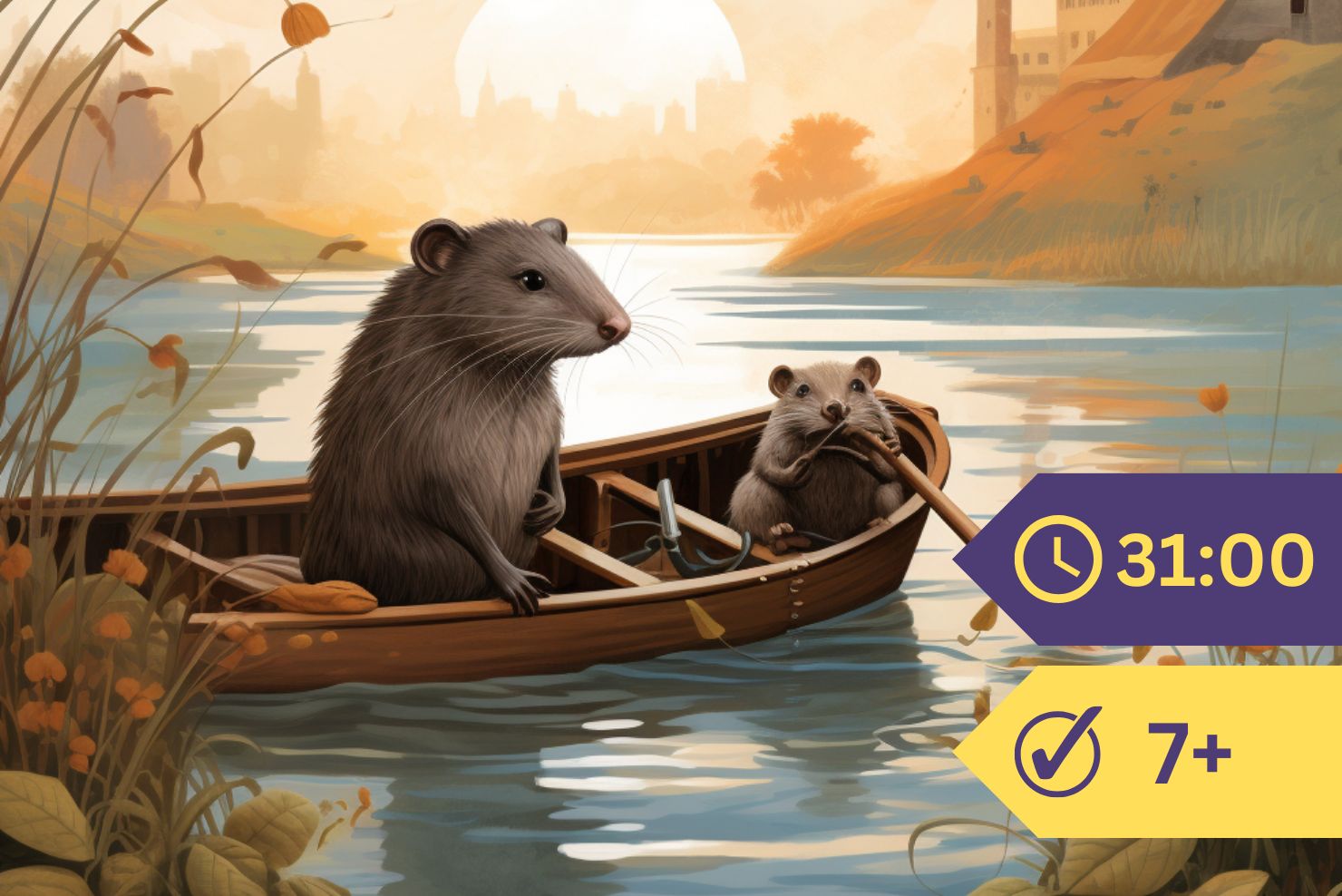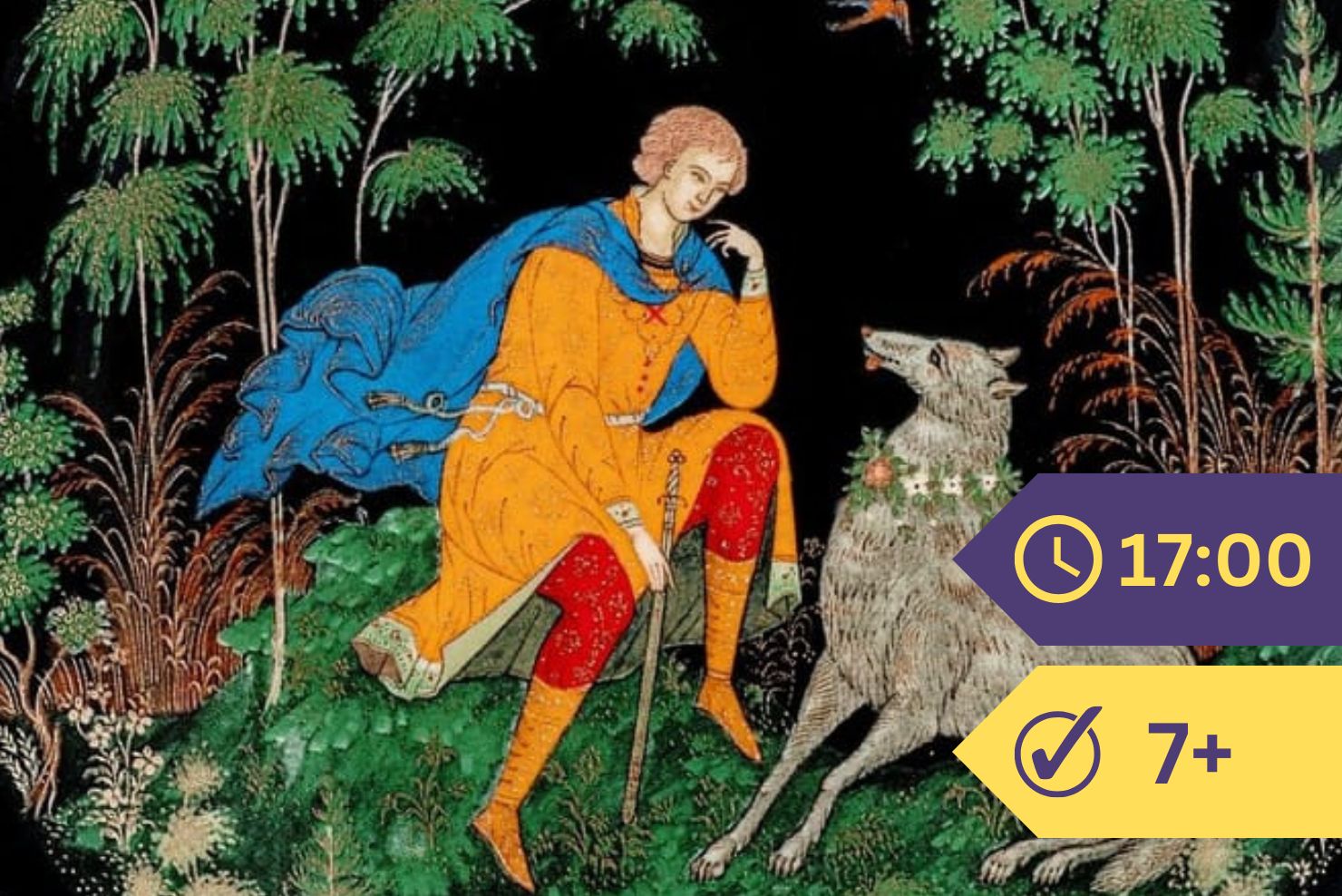The knight took his leave and went on his way, and Robin Hood and his merry men lived on for many a day in Barnsdale.
Now the Sheriff of Nottingham proclaimed a grand sport to be held—that all the best archers of the north country should come one day and shoot at the butts, and that a prize should be given to the best archer.
The butts were to be set in a glade in the forest and he who shot the best of all should receive an arrow, the like of which had never been seen in England, for the shaft was to be of silver, and the head and feathers of red gold.
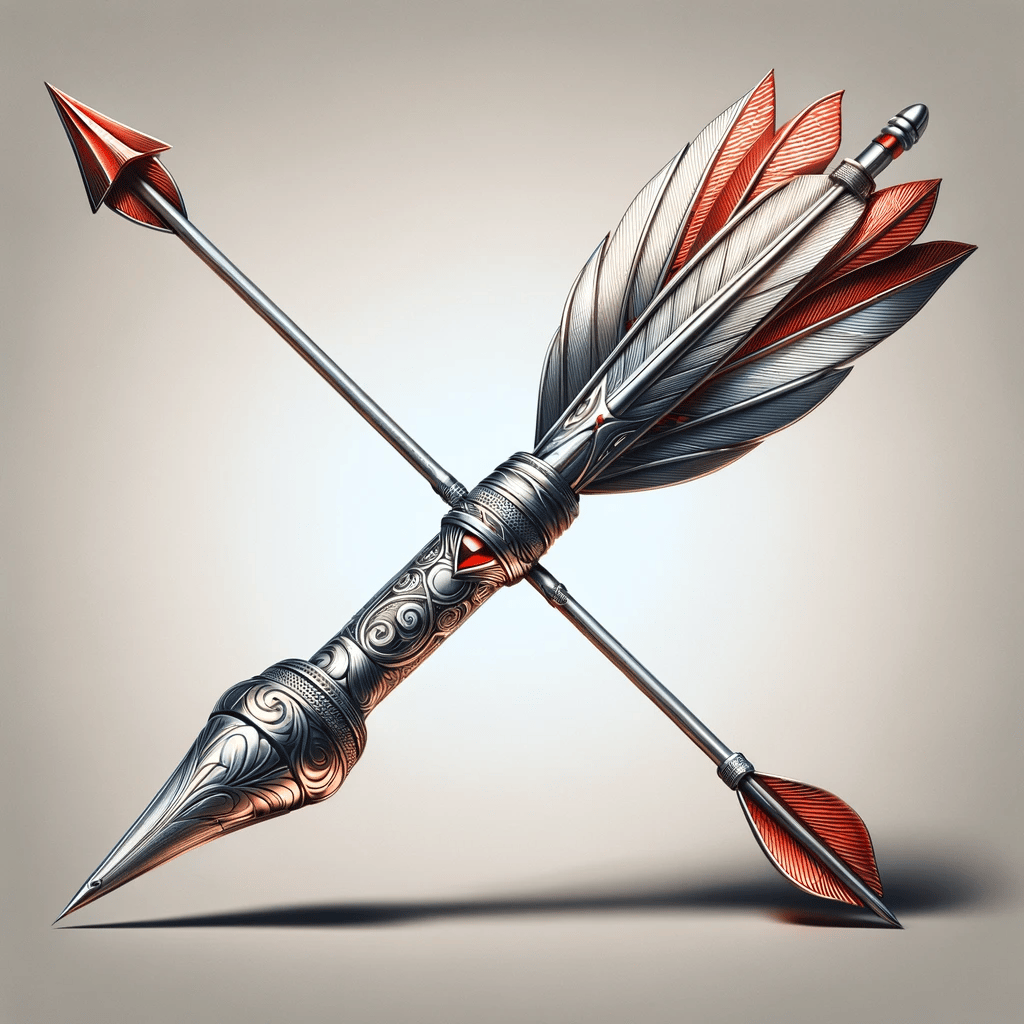
Now all this was a device of the sheriff’s to try to enthral the outlaws, for he imagined that when such matches took place Robin Hood’s men without any doubt would be the bowmen there.
Tidings of this came to Robin Hood in the forest, and he said: “Come, make ready, my lads, we will go and see that sport. Ye shall go with me, and I will test the sheriff’s faith, and see if he be true.”
With that a brave young man, called David of Doncaster, stepped forward.
“Master,” he said, “be ruled by me, and do not stir from the greenwood. To tell the truth I am well informed yonder match is a wile. The sheriff has devised it to entrap us.”
“That sounds like a coward,” said Robin; “thy words do not please me. Come what will of it, I’ll try my skill at yonder brave archery.”
Then up spoke brave Little John.
“Let us go thither, but come, listen to me, and I will tell you how we can manage it without being known. We will leave behind us our mantles of Lincoln green, and we will all dress differently so that they will never notice us. One shall wear white, another red, a third one yellow, another blue. Thus in disguise we will go to the sport, whatever may come of it.”
When they had their bows in order and their arrows well feathered there gathered round Robin seven score of stalwart young men.
When they came to Nottingham they saw the butts set out fair and long, and many were the bold archers who came to shoot. The outlaws mixed with the rest to prevent all suspicion, for they thought it more discreet not to keep together.
“Only six of you shall shoot with me,” said Robin to his men. “The rest must stand on guard with bows bent so that I be not betrayed.”
The sheriff looked all round, but amidst eight hundred men he could not see what he suspected.
The outlaws shot in turn, and they all did so well that the people said that if Robin Hood had been there, and all his men to boot, none of them could have surpassed these men.
“Ay,” quoth the sheriff ruefully, rubbing his head. “I thought he would have been here; I certainly thought he would, but though he is bold he doesn’t dare to appear.”
His speech vexed Robin Hood to the heart. “Very soon,” he thought angrily, “thou shalt well see that Robin Hood was here.”
Some cried blue jacket, another cried brown, and a third cried brave yellow, but a fourth man said: “Yonder man in red hath no match in the place.”
Now that was Robin Hood himself, for he was clothed in red. Three times he shot, and each time he split the wand. To him, therefore, was delivered the golden arrow as being the most worthy. He took the gift courteously, and would have departed back to the greenwood; but the Sheriff of Nottingham had by this time marked him, and had no mind to let him go so easily. The alarm was raised; they cried out on Robin Hood, and great horns were blown to summon help to capture him.
“Treachery! treason!” cried Robin. “Full evil art thou to know! And woe to thee, proud sheriff, thus to entertain thy guest! It was otherwise thou promised me yonder in the forest. But had I thee in the greenwood again, under my trysting-tree, thou shouldst leave me a better pledge than thy loyalty and truth.”
Then on all sides bows were bent, and arrows flew like hail; kirtles were rent, and many a stout knave pricked in the side. The outlaws shot so strong that no one could drive them back, and the sheriff’s men fled in haste.
Robin saw the ambush was broken, and would fain have been back in the greenwood, but many an arrow still rained on his company. Little John was hurt full sorely, with an arrow in his knee, and could neither ride nor walk.
“Master,” he cried, “if ever thou loved me, and for the meed of my service that I have served thee, let never that proud sheriff find me alive! But take thy sword and smite off my head, and give me deep and deadly wounds, so that no life be left in me.”
“I would not that, John—I would not thou wert slain for all the gold in merry England!” cried Robin.
“God forbid that thou shouldst part our company, Little John,” said Much.
He took Little John up on his back, and carried him a good mile, and more. Often he laid him down on the ground, and turned to shoot those who came after, and then he took him up and carried him on again. So the outlaws fought their way, step by step, back to the forest.
A little within the wood there was a fair castle, with a double moat, and surrounded by stout walls. Here dwelt that noble knight, Sir Richard Lee, to whom Robin Hood had lent the four hundred pounds to redeem his land.
He saw the little company of outlaws fighting their way along, so he hastened to call them to come and take shelter in his castle.
“Welcome art thou, Robin Hood! Welcome!” he cried, as he led them in. “Much I thank thee for thy comfort and courtesy and great kindness to me in the forest. There is no man in the world I love so much as thee. For all the proud Sheriff of Nottingham, here thou shalt be safe!—Shut the gates, and draw the bridge, and let no man come in!” he shouted to his retainers. “Arm you well; make ready; guard the walls! One thing, Robin, I promise thee: here shalt thou stay for twelve days as my guest, to sup, and eat, and dine.”
Swiftly and readily tables were laid and cloths spread, and Robin Hood and his merry men sat down to a good meal.

